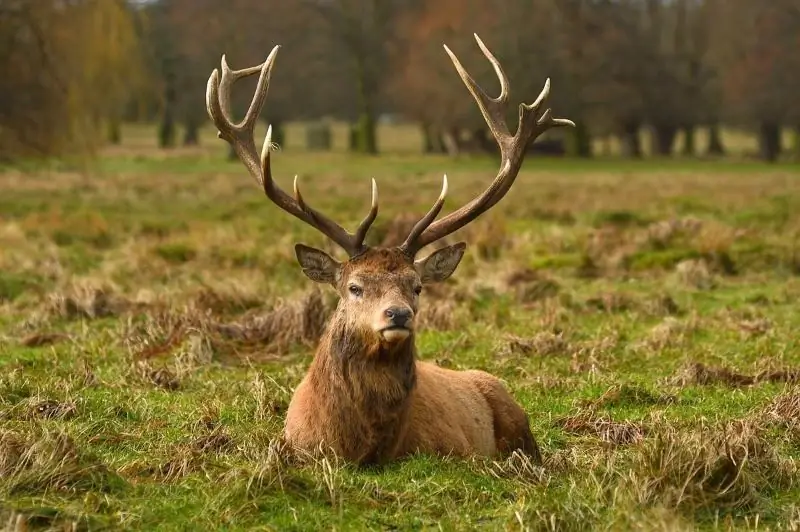
Table of contents:
- Author Bailey Albertson albertson@usefultipsdiy.com.
- Public 2023-12-17 12:53.
- Last modified 2025-01-23 12:41.
Who was the first "cuckold" and how did the expression "give the horns" appeared

Horns have become a symbol of a deceived spouse. When it comes to the wife's infidelity, then instead of the word "treason" they say "she gave the horns to her husband." There are various versions of the origin of this expression.
One of the first
According to one of the widespread versions, the young man Actaeon, the hero of the ancient Greek myth, became the first cuckold. One afternoon the hunter Actaeon wandered into the Gargafia valley in search of a shady place. In the grotto of the steep slope of the cliff, he saw the beautiful Artemis, who was getting ready to swim.
The warlike daughter of the thunderer Zeus and Latona noticed the peeping hunter and got angry. She turned the unfortunate youth into a deer. The poor fellow ran away and ran into his own hunting dogs. The pack did not recognize the owner and tore him to pieces.

The name Actaeon has become a household name for deceived spouses. In this version, however, there are contradictions - Actaeon can in no way be called a man whom his wife cheated on.
The legend of the emperor
The version associated with the Byzantine emperor Andronicus Comnenus (1183-1185) sounds more convincing. Historians describe Andronicus as an intelligent, strong, handsome and loving man. His amorous connections displeased the nobles. The fact is that the ruler started intrigues with the wives of his own courtiers. Women did not dare to refuse, and husbands did not dare to object. Otherwise, it was possible to lose not only status, but also life.
Andronicus, however, was lustful, but he was not a fool, and therefore he gave land to some deceived spouses, and to others the right to hunt in the imperial domain, where large herds of deer grazed. Antlers were a sign of dubious privilege. They were solemnly nailed to the gates of the estate by order of the emperor. The court jokers whispered that "deer sprouts" grow on the foreheads of those benefited. However, there were few people willing to gossip out loud. The morals at the imperial court were cruel - a joker could easily be hung on the same gate.
Another emperor is credited with contributing to the origin of the "cuckolds". This time German. In 1427, a decree was issued prohibiting soldiers from being in the army with their wife. Allegedly, conjugal sex leads to a weakening of the military spirit. Violators of the ban were required to wear "branchy jewelry".
Seeing off her husband

Researchers-philologists Melerovich and Mokienko mention in the book "Phraseological units in Russian speech" another version of the origin of phraseological units. The ancient Germans had a custom, according to which a woman, accompanying her husband to war, put on a horned helmet. By this she informed that she had equipped the faithful for the campaign and "remains free." When the warriors returned, they often found an addition to the family.
But the Germans themselves believe that helmets have nothing to do with it. The expression comes from a specific procedure for castrating roosters that was common in German villages. To the unfortunate rooster, not only the testes were removed, but the comb and spurs were cut off. Then the spurs were transplanted to the place of the ridge. So the capon became a "cuckold".
Other versions
In ancient times, a horn was a sign of power, fertility and sexual strength of a man. The ancient Greeks used the same word for the penis. Diomedes, laughing at Paris, says: "Archer, braggart, proud horn, pursuing maidens."
The ancient Romans had the same sexual connotation. Ovid, having learned about the betrayal of his beloved, exclaimed: "Later horns appeared on my head."
In Italy, "cuckold" is one of the most severe insults, and in the southern regions, the combination of fingers "goat" is considered an allusion to the infidelity of someone else's wife.
In Portugal, there was a belief that a man who had been cheated on would have a sore forehead and the very deer branches might grow. Also in the old days there was a custom to hand the disgraced a wig with horns, if he did not wash away the shame with the blood of the offender.
In Spain, the phrase "instruct the horns" was associated with the Devil, since the horned tempter is the primary source of all sin and fornication.
The image of a spouse, on whose forehead a branched ornament grows after betrayal, is spreading in European poetry of the 13th century. Soon, the custom arose to decorate the heads of unlucky spouses with horns, showing what the wrong halves were gifted with.
In France, the word "cuckold" has long been used to refer to the husband of a permanent or temporary royal mistress.
Surprisingly, today "horns" are a symbol of adultery among peoples living on different continents. They serve as a shameful decoration in Russia, Czech Republic, Germany, Portugal, Arab countries. Almost everywhere, except for China, they "wear a green hat."
Recommended:
Fleas In The Apartment: Where And How To Get Rid Of Their Appearance In The House Quickly And Efficiently Using Dichlorvos, Wormwood And Other Means + Video
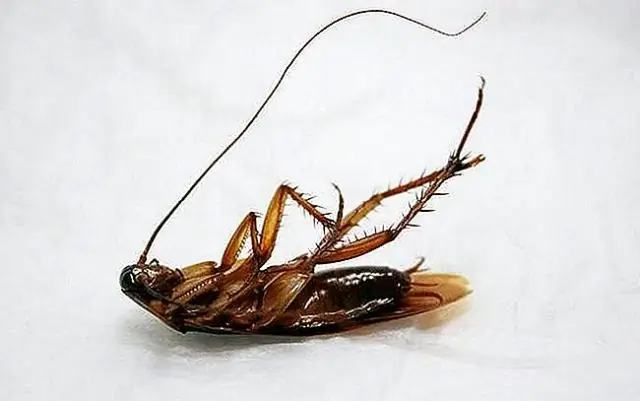
Where do fleas come from in a house or apartment and how to determine their presence. Effective ways to help get rid of parasites quickly
How To Ignite A Cast Iron Pan Before The First Use And In Other Cases: Salt, Oil And Other Methods + Photos And Videos

How to ignite cast iron pans. Quick ways to get rid of engine oil residues, rust and carbon deposits
Mating Cats And Cats: How Mating Takes Place, At What Age Should The First Mating Of Pets And Other Advice To Owners
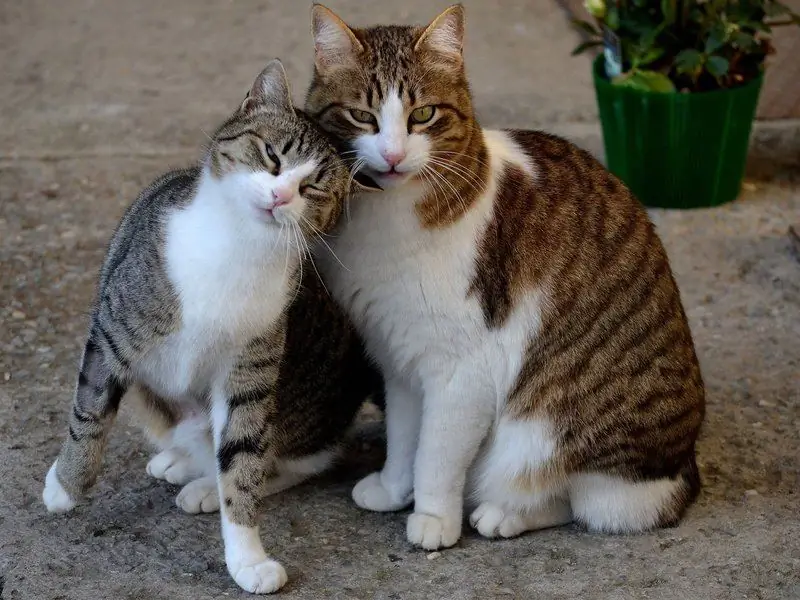
The timing of puberty in cats and cats. First mating rules. Preparation for mating. Choosing a partner. Mating process of cats. Signs of pregnancy. Reviews
How To Give Birth To A Cat At Home: How To Give Birth If It Is Giving Birth For The First Time, What To Do And How To Help The Animal
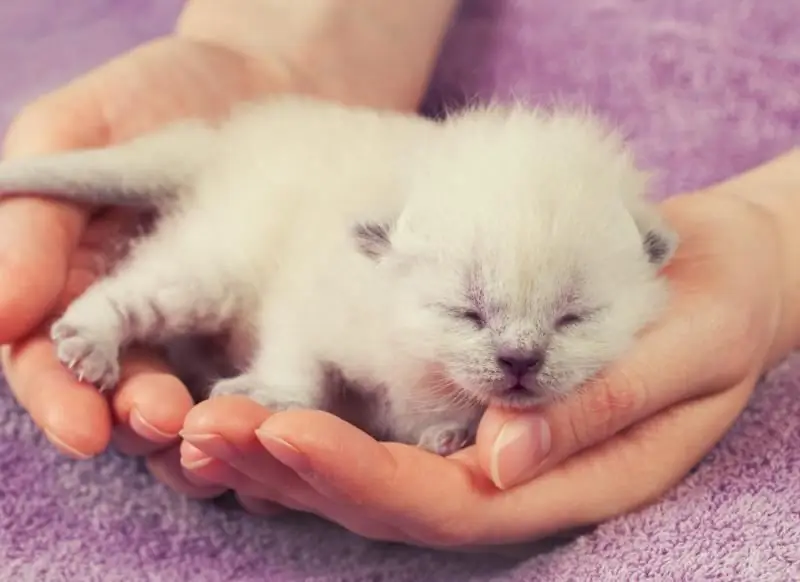
How is a cat giving birth. Site preparation and materials. How to understand that a cat is giving birth and how you can help her. Possible complications and caring for a cat after giving birth
Grumpy Cat: Reasons For The Unusual Appearance Of A Sad Cat And The History Of The Popularity Of The "grumpy Cat", Photo
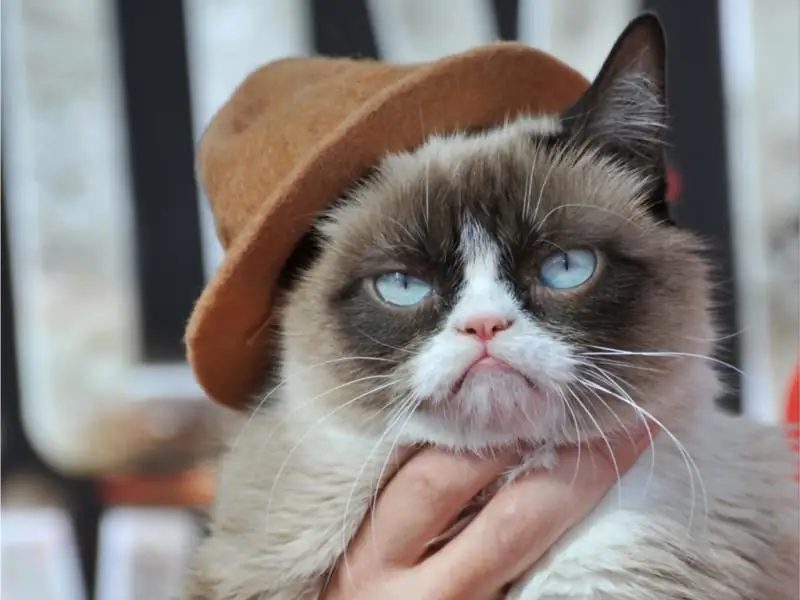
The most popular cat on the Internet Grumpy Cat and her story: how it all began, where it led and what are the reasons for success
